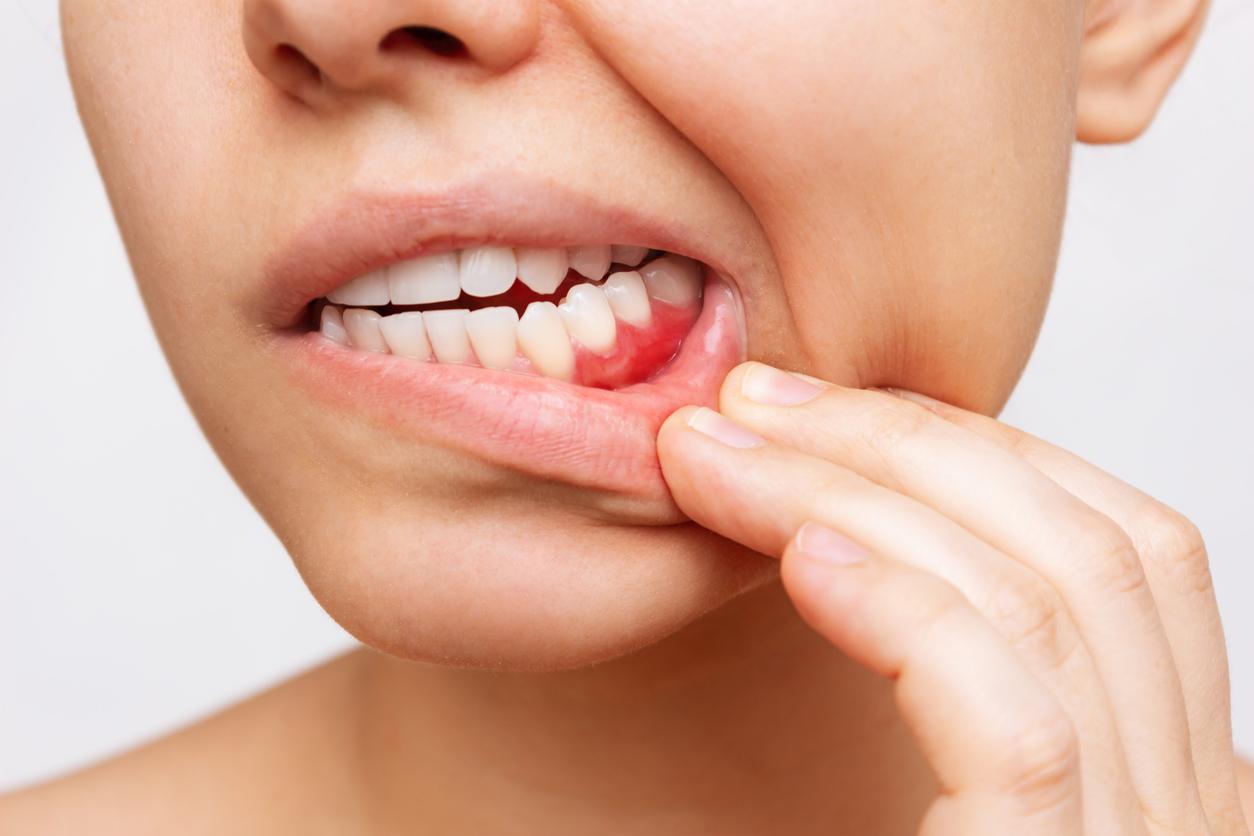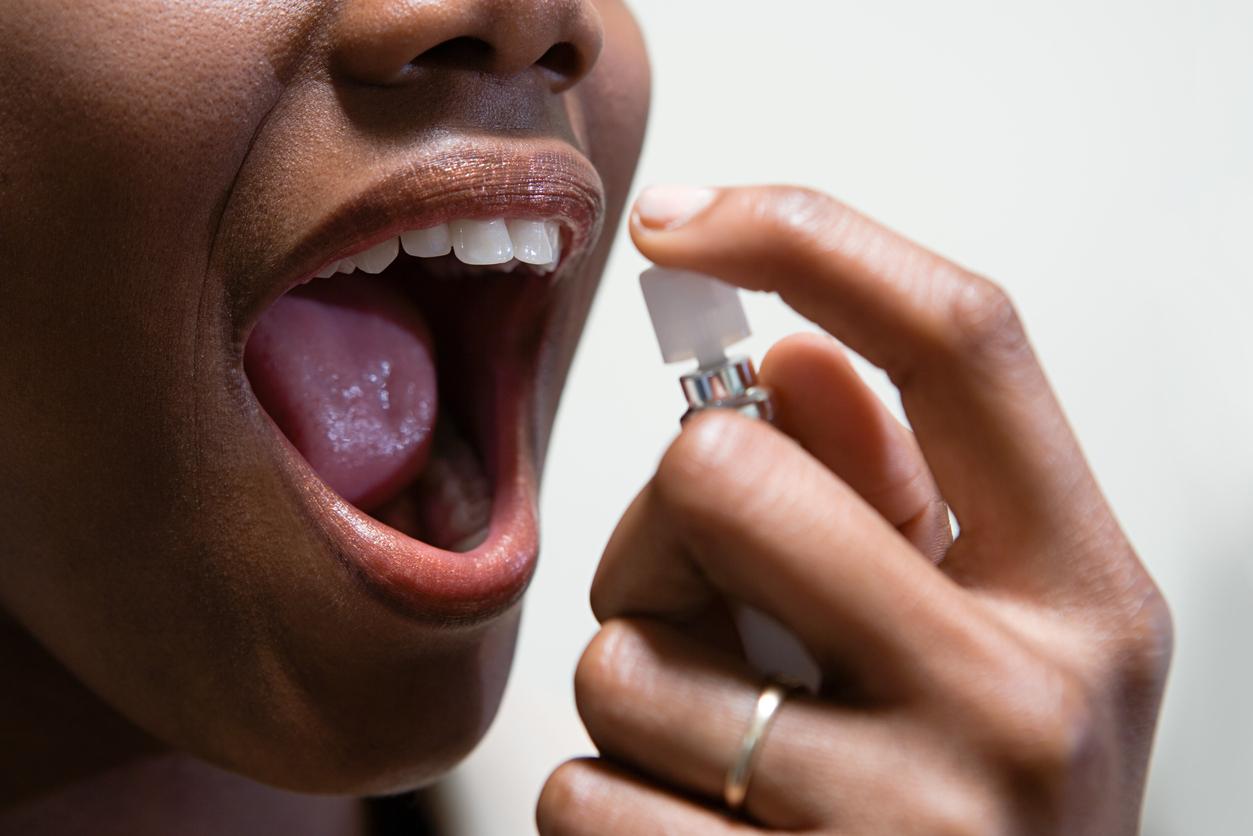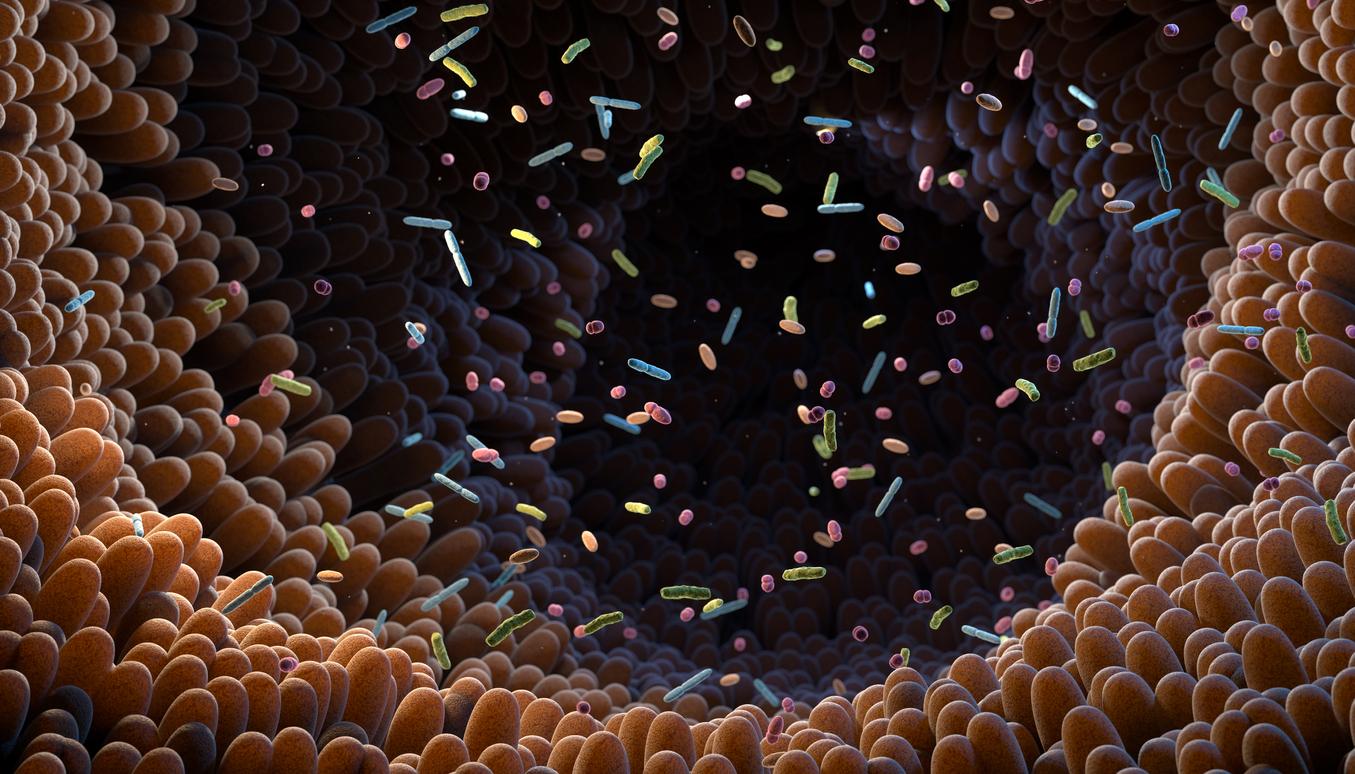- The role of saliva, symptoms
- The causes of dry mouth
- Solutions and remedies for dry mouth
- When to consult in case of dry mouth
The role of saliva, symptoms
Normally, our amount of saliva is enough to moisten our mouth, and we do not even notice the operation of this mechanism as it is natural to us. But sometimes it happens that the machine seizes up and we feel parched or dehydrated.
We may rush for glasses of water to quench our thirst, but sometimes this reflex remains insufficient. The feeling of dry mouth persists. Prolonged and excessive dryness of the mouth results fromabsent saliva secretion or at least insufficient. It can occur and settle over time, or even remain an isolated episode. With the consequences of eating difficulties or even bad breath. Saliva plays an important role since it prevents cavities or infections, by moistening and protecting the oral mucosa and teeth. It also helps digestion, by facilitating the passage of food through the esophagus and the digestive tract, thanks to its enzymes.
THE signs of dry mouth appear clearly. It’s the feeling of having a pasty mouth, filled with cotton wool or to feel like a burn or a tongue that feels dry. There may also be dry lips, discomfort or difficulty swallowing or speaking.
The causes of dry mouth
Dry mouth, also known as xerostomiaoften affects the elderly because it results the effect of drug treatments. This is one of the side effects that doctors or pharmacists do not necessarily specify at the time of the prescription. Chewing food can become painful and cause difficulty in swallowing. The perception of taste can be altered and dental appliances become difficult to bear.
In the list of medications which can cause these disorders include anti-depressants, anti-histamines, anti-inflammatories or even hypertensives, or amphetamines. It should also be noted that radiotherapy or chemotherapy also dries out the oral cavity enormously.
Some illnesses act as a trigger.
- This is the case with diabetes.
- Lupus.
- Chronic kidney damage.
- There is also a condition called Gourgerot-Sjören syndrome that causes this problem.
- You should also know that the stress or anxiety can lead to a feeling of dry mouth.
- Tobacco use too.
- The habit of breathing through the mouth.
- Poorly controlled diabetesor chronic renal failure, for example, are risk factors.
- In rarer cases, some head or neck injuries sometimes damage the nerves that signal the salivary glands to produce saliva.
Solutions and remedies for dry mouth
ifthere is no cure for dry mouth, the solutions exist, but they require reflexes to include on a daily basis. First, you have to keep a bottle of water nearby and carry it everywhere. The idea is to regularly drink small sips at room temperature. Never ice cold or boiling water. You can also drink during the meal. This is not a problem.
Other solution, sugar-free chewing gum. By chewing, we will stimulate the flow of saliva and keep the oral cavity well moistened. Sugar-free candies can also do the trick. If you use mouthwashes, choose alcohol-free ones. Check the list of ingredients carefully or ask the pharmacist for advice.
Otherwise, it is imperative eliminate alcoholic beverages and tobacco which aggravate the phenomenon.
When to consult in case of dry mouth
Be careful because a persistent lack of saliva can cause deposits of dental plaque which will increase the risk of gingivitis and cavities or other infections of the mouth such as oral mycosis. In any case, if this dryness is prolonged and becomes bothersome, do not hesitate to opt for medical monitoring because it can, in the long term, affect the quality of life.
Source :
Interview with Doctor Christophe Lequart, dental surgeon
Read also:
- 4 small dental problems to never neglect
- 10 misconceptions about dental care
- Gingivitis or periodontitis: are you at risk?
















